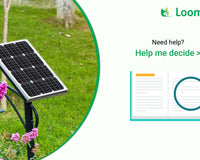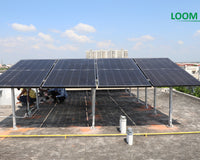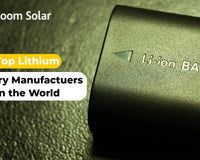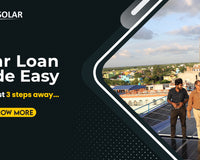Solar system is necessary for small businesses due to its numerous benefits, including cost savings, environmental responsibility, energy independence, and potential revenue generation. By harnessing solar power, small businesses can significantly reduce their electricity bills, freeing up capital for other investments. Moreover, solar panels provide a reliable and stable source of electricity, ensuring energy independence and protection against volatile energy prices. Overall, installing a solar system helps small businesses become sustainable, economically competitive, and socially responsible entities.
The most suitable solar system for a small business depends on several factors, including the business's energy needs, available roof or ground space, budget, and location. Generally, there are three main types of solar systems suitable for small businesses.
On Grid Solar System: A on grid solar system is connected to the utility grid. It generates solar energy during the day and feeds any excess energy back into the grid. This excess energy is typically credited to the business through a process called net metering. On grid solar systems are usually cost-effective to install, making them a popular choice for small businesses with reliable grid access.
Off-Grid Solar System: An off-grid solar systems operate independently of the utility grid and are suitable for small businesses located in remote areas with no access to the grid. These systems require sufficient battery storage to supply power during periods of low or no sunlight. Off-grid systems are more complex and costly to set up compared to on grid solar systems.
Hybrid Solar System: A hybrid solar system can be a great option for many small businesses due to its flexibility, energy resilience, and cost-saving potential. A hybrid solar system combines the benefits of both on grid solar systems and off-grid solar systems, utilizing solar energy and battery storage to provide power in a more flexible and resilient manner. This solar system includes battery storage. It allows the business to store excess solar energy in batteries during the day and use it during non-sunny hours or during power outages. Battery backup provides energy resilience and can be particularly beneficial for small businesses that require continuous power even during grid outages.
Note
It's essential to consider factors such as local infrastructure, availability of grid connection, budget, and energy requirements when deciding between on-grid and off-grid solar systems and hybrid system. Consulting with solar energy experts can help make an informed decision based on the specific circumstances of the business needs.












